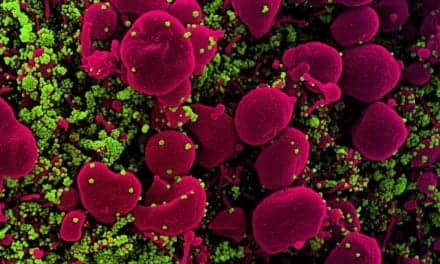Scientists say they have isolated a promising new antibiotic from a bacteria found in an ant-plant complex native to Africa.
Prof Matt Hutchings from UEA said: “We have been exploring the chemical ecology of protective symbioses formed between antibiotic-producing bacteria and fungus-growing insects to better understand how these associations are formed and explore them as a new source of anti-infective drugs.
“Kenyan plant-ants live in symbiosis with thorny acacia trees. They live and breed in domatia – which are hollowed out structures which the plant evolved to house them – and grow fungus in them for food. In return, they protect the plants from large herbivores including elephants, which won’t eat plants covered in ants.”
The team isolated a number of actinomycete bacterial strains from the acacia plant housing the ants, selecting a number for genome sequencing. One particular strain caught their attention, and the antibiotic compounds produced from it showed promising activity in early tests against other disease-causing bacteria.
Read more at www.medicalnewstoday.com










